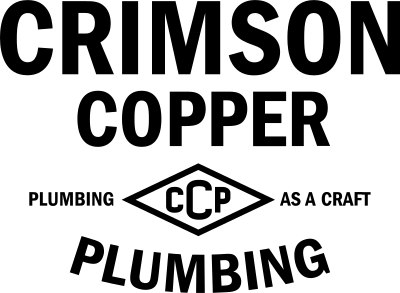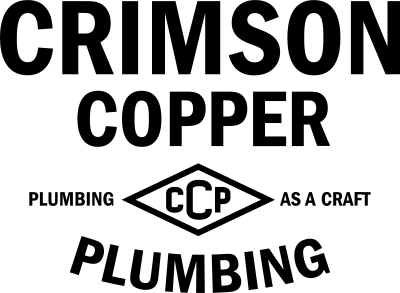If you’re a homeowner in Chaska, Minnesota, you’ve likely wondered whether investing in a water softener is a worthwhile endeavor.
With Chaska’s unique water characteristics and the town’s growing population of around 27,000 residents, this is a question many locals face when settling into their new homes or upgrading their current water systems.
Key Takeaway: A professionally installed and maintained water softener can reduce appliance wear, lower energy costs, and enhance daily comfort, ultimately offsetting its initial cost over time.
Chaska’s Water Quality: The Hard Facts
Chaska has some of the hardest water in Minnesota, with a hardness level of 26.0 grains per gallon (gpg) or 445.1 parts per million (ppm).
To put this in perspective, the Minnesota Department of Health recommends considering a water softener if your water’s hardness exceeds 7 grains per gallon.
Chaska’s water is nearly four times that threshold, making it some of the hardest municipal water in the state.
The city of Chaska draws its drinking water from several deep-bedrock aquifers, primarily the Mt. Simon and Hinkley, as well as the Tunnel City-Wonewoc and Jordan aquifers.
These sources, due to their geological composition, are naturally very high in dissolved minerals like calcium and magnesium, which causes the water’s extreme hardness.
The city’s water treatment plant effectively removes iron and manganese, but it lacks a large-scale softening process.
The city’s focus is on ensuring that the water meets all federal and state health standards.
Although the hardness level is not a health concern, it remains a significant aesthetic and plumbing issue for residents.
Therefore, the responsibility for softening the water falls to individual homeowners.
What Makes Water “Hard” and Why It Matters
Hard water contains high concentrations of dissolved minerals, mainly calcium and magnesium.
While these minerals aren’t harmful to your health, they can create significant problems for your home’s plumbing system, appliances, and daily life.
In Chaska’s case, the exceptionally high mineral content means these issues are more pronounced than in many other Minnesota communities.
Signs You Need a Water Softener in Your Chaska Home
Living with hard water in Chaska can manifest in several frustrating ways:
Plumbing and Appliances:
- White, chalky buildup on faucets, showerheads, and fixtures
- Reduced water pressure from mineral deposits in pipes
- Shortened lifespan of water heaters, dishwashers, and washing machines
- Higher energy bills as appliances work harder due to scale buildup
Daily Living:
- Soap and shampoo that don’t lather well
- Dingy, stiff clothing after washing
- Spotted dishes and glassware
- Irritated skin and dull hair after taking a shower
- Increased soap and detergent usage
Financial Impact:
- Frequent appliance repairs and early replacements
- Higher utility bills due to inefficient appliances
- Increased spending on cleaning products and personal care items
Benefits of Installing a Water Softener in Chaska
Given Chaska’s extremely hard water, investing in a water softener can provide substantial benefits:
Appliance Protection: Water softeners help appliances function more efficiently and last longer, resulting in lower energy bills and fewer appliance repairs. With Chaska’s 26 gpg hardness level, this protection is especially valuable.
Improved Water Quality: A whole-home water softener reduces magnesium and calcium levels to below 120 PPM, dramatically enhancing your water experience. The result is water that is gentle on your skin and hair.
Cost Savings: Softened water allows soaps and detergents to work more effectively, reducing the amount needed for cleaning. Your clothing will last longer, and you’ll spend less on specialty cleaning products designed to combat hard water stains.
Enhanced Home Value: In a community like Chaska, where water hardness is a known issue, having a quality water softening system already installed can be a selling point for potential buyers.
Water Softener Recommendations for Chaska Homes
For Chaska’s water conditions, a water softener should be set to 24-26 grains of hardness. This requires a robust system capable of handling the city’s extreme hardness levels.
Key features to look for include:
- High-capacity resin tanks to handle the mineral load
- Efficient regeneration cycles to minimize salt usage
- Demand-based operation rather than timer-based systems
- Quality construction to withstand Chaska’s challenging water conditions
Neighborhoods and Water Softener Considerations
Chaska’s diverse housing market presents different considerations for water softener installation:
Downtown Chaska: Many of the historic homes from the early 1900s may have older plumbing that has already suffered from decades of exposure to hard water. A water softener can prevent further damage while you update other home systems.
The Highlands: These larger homes from the 1990s to 2000s, priced around $500,000, often feature multiple bathrooms and high-end appliances that greatly benefit from water softening protection.
The Harvest: New construction homes around $1,000,000 with features like sport courts represent significant investments that deserve protection from day one with a quality water softening system.
Environmental and Health Considerations
While water softeners provide clear benefits in Chaska’s hard water environment, it’s worth noting that these systems work by exchanging calcium and magnesium for sodium particles.
The Minnesota Pollution Control Agency recommends using demand-based systems rather than timer-based ones to minimize salt usage.
For residents concerned about sodium intake or environmental impact, alternative water conditioning systems are available, though traditional ion-exchange softeners remain the most effective solution for Chaska’s extreme hardness levels.
Making the Investment Decision
For most Chaska homeowners, a water softener isn’t just worth it—it’s nearly essential. With water hardness at 26 gpg, you’re likely already experiencing the negative effects of hard water, even if you don’t realize they’re water-related.
Consider these factors:
- Immediate relief: You’ll notice softer skin, better-lathering soap, and cleaner dishes almost immediately
- Long-term savings: Protection for expensive appliances and plumbing systems
- Quality of life: Enhanced daily experiences with bathing, cleaning, and cooking
- Property value: A selling point in Chaska’s competitive real estate market
Professional Installation in Chaska
Given the complexity of Chaska’s water conditions and the investment involved, professional installation is recommended.
A qualified local plumber can assess your home’s specific needs, recommend appropriate equipment sizing, and ensure proper installation and maintenance.
Local professionals understand Chaska’s unique water challenges and can provide ongoing service and support.
They can also address any additional water quality issues that might be present alongside the hardness problem.
Conclusion
Living in Chaska means dealing with some of Minnesota’s hardest water, but it doesn’t mean you have to suffer the consequences.
A quality water softener is not just worth the investment; it’s practically a necessity for protecting your home, saving money, and improving your daily quality of life.
Whether you’re living in a charming downtown historic home, a spacious Highlands residence, or a brand-new Harvest construction, your investment deserves protection from Chaska’s challenging water conditions.
The question isn’t whether you can afford a water softener, but whether you can afford to live without one.
With proper professional installation and maintenance, a water softener will pay for itself through reduced appliance wear, lower utility bills, and improved daily living.
For Chaska homeowners, it’s one of the smartest investments you can make in your property and your family’s comfort.


